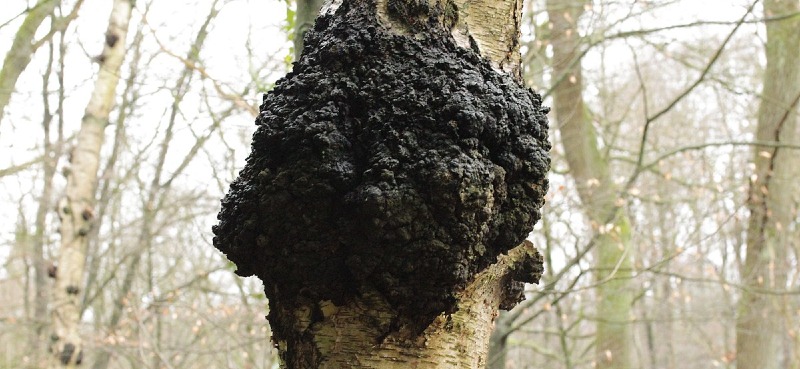Medicinal Value of Chaga Mushrooms as a Nutraceutical for Good Health

In an updated review of the medicinal value of a native Siberian fungus called chaga, the authors emphasize the almost unbelievable importance of this humble organism for effective medicine.
Their analysis, which combines the old and new functions of chaga, describes its anticancer, antioxidant, anti-diabetic, anti-inflammatory, antimicrobial and immunomodulating properties as “remarkable.”
As World at Large reports, there is a very wide, very blurred line that separates food from medicine. Almost all known diseases are associated with nutrient deficiencies, from bone cancer to sepsis.
Although no one suffering from migraines or eczema runs to the kitchen, medical deficiencies of certain nutrients may be the main or troubling causes of many diseases.
As part of eating for health, nutraceuticals – sometimes called “functional foods” – which define the vague border mentioned above, are of great interest. Mushrooms are definitely included in this category.
Chaga is not a mushroom as we would recognize it, but a white fungus that grows on trees instead of coming up from the soil. It is found in North America, Siberia and Scandinavia, and has a traditional history of medicinal use. It is brewed into a tea and used to treat inflammation and cancer in indigenous cultures across Russia, for example.
Chaga contains polyphenols and triterpenes, also known as phytonutrients, or certain compounds found in plants, many of which have been established as antibacterial, anti-toxic, antioxidant, anti-cancer, antiviral, hypoglycemic , hepatoprotective, and immunomodulatory effects.
These include betulinic acid, betulin, ergosterol peroxides, caffeic acid, inonoblin B, trametenolic acid, lupeol, lanosterol, inotodiol and melanin.
Chaga, like all mushrooms, contains beta-glucans as its main source of fiber. Beta-glucans are probably the healthiest and most nutritious type for humans to eat, but they are only found in mushrooms. A great source of fiber helps regulate immune responses from the gut, prevent colon and rectal cancer, and strengthen the mucus lining in the GI tract, thereby preventing pathogens. take care that the intestines do not enter the blood.
Another part of the health benefits of chaga is betulin and betulinic acid. These names refer to the birch tree (correct) and it is likely that chaga accumulates these compounds in its microbial relationship with hardwood.
“Betulin has anti-cancer activity and is used to treat wounds. Betulin derivatives stimulate collagen synthesis in normal human fibroblasts. “Betulin can be easily converted to betulinic acid, a compound with anti-malarial, antifungal, anticancer and anti-inflammatory activity,” the authors write.
“Betulin and betulinic acid are the most effective ingredients used against skin inflammation. Betulin, betunilic acid and their derivatives can be used against melanoma skin cancer, epidermoid carcinoma and actinic dermatosis.”
PLEASE NOTE: Vitamin D Boosts Cancer Defense and Reduces Tumor Growth in Mice, Study Finds
The anti-cancer effects are very important. The authors continue…
In addition, triterpenoids, such as inotodiol and ergosterol peroxide, are found [chaga] have shown anti-cancer properties by inducing apoptosis, inhibiting cell proliferation, and suppressing angiogenesis. Similarly, a compound called 3,4-dihydroxybenzalacetone has been found to have anticancer properties.
EATING FOR LIFE: Holy mackerel! Fish Is Really Brain Food – Even If You Eat Only Small Amounts
“It can regulate the expression of genes that promote anti-apoptosis and cell proliferation. In addition, [chaga] it produces polyporenic acids, including inotolic acid, which have shown promising anti-cancer effects by inhibiting cancer growth and causing cell death.
“The extract of chaga mushroom showed potential anticancer activity against B16-F10 melanoma cells in vitro and in vivo by inhibiting proliferation and inducing cell division and apoptosis cancer,” they wrote.
OTHER STORIES SIMILAR TO THIS ONE: Porcini Mushrooms Ranked Among the Highest in the World for a rare ‘Essential Vitamin’.
Chaga is one of the most well-known types of fungi that promote health, but it is certainly one of the most researched. It is often considered a supplement because most people do not live near the Arctic Circle to find chaga in the wild.
Choosing a supplement should be done carefully, as the supplement industry is full of hucksters, tainted products and scams. In addition to these unusual challenges, choosing the right chaga supplement will include making sure that you get a product made from real mushrooms, or at least mushrooms, not mycelium.
SHARE This Nutraceutical Review with Your Health and Fitness Crazy Friends…
#Medicinal #Chaga #Mushrooms #Nutraceutical #Good #Health